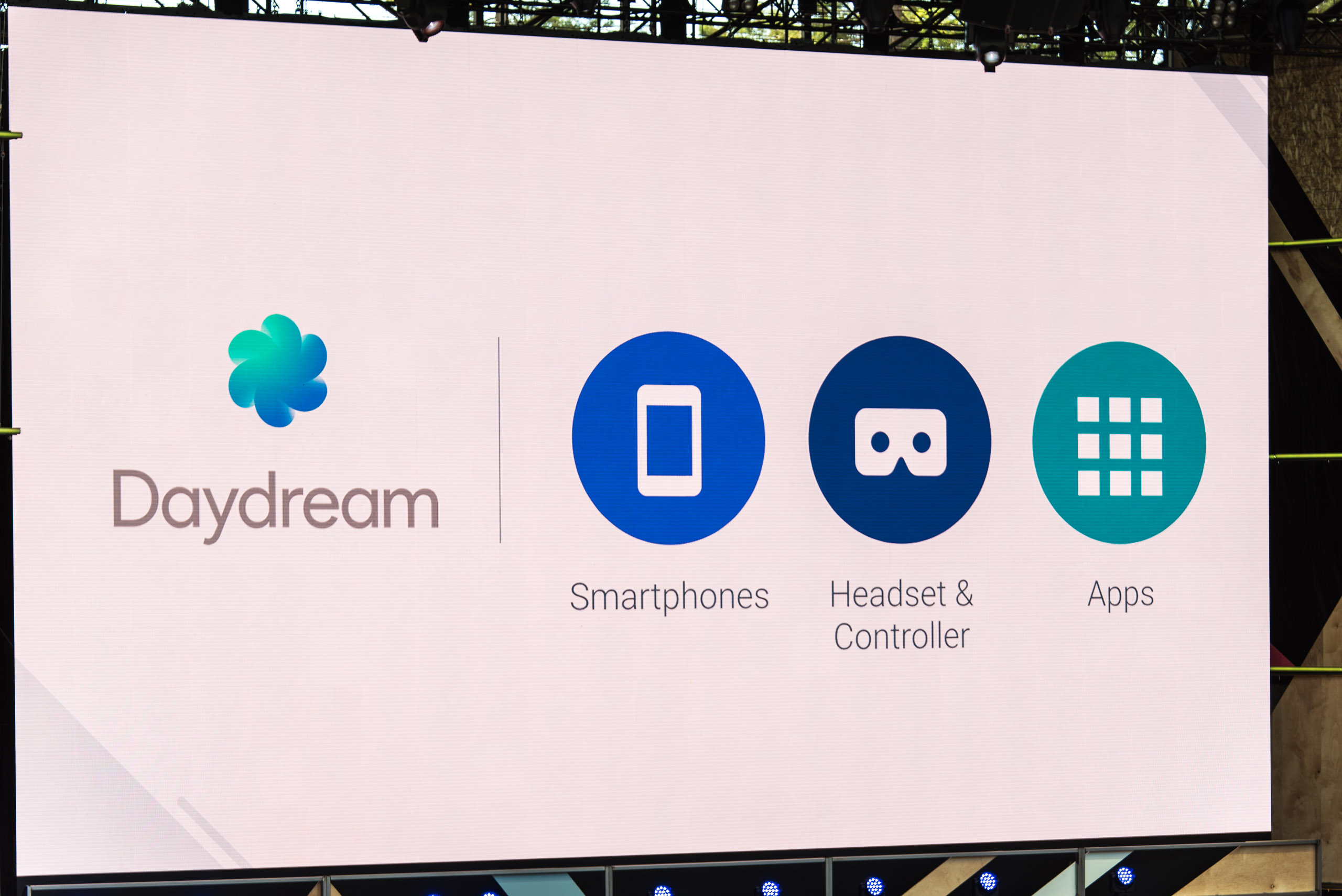Google's 'Daydream' VR Developer Tools Emerge From Beta With Unity, Unreal Support
Earlier this year at its I/O conference, Google announced its next-level virtual reality platform for Android, called “Daydream.” The company’s VR developer tools are now out of beta, which means developers can already begin building Daydream-ready applications for Android.
The new Google VR SDK 1.0 makes certain VR development tasks easier, so the developers can focus on building the main features of their VR applications and games. The SDK also supports integrated asynchronous reprojection, high fidelity spatialized audio, and interactions using the Daydream controller.
Google said that it has partnered with Unity and Unreal, two of the most popular third-party gaming engines, so developers can use the game-building tools they already know well. The company has updated its VR development site as well, where developers can read all the documentation for the Daydream platform, and see sample applications and tutorials.
Native Unity Integration
The Daydream platform is now fully supported by Unity, which means developers can take advantage of all of Unity’s VR rendering optimizations. Unity will also support features such as head tracking, deep linking, and easy Android manifest configuration.
Google said that many Daydream launch applications are already taking advantage of this integration with Unity. Developers can download the Unity binary along with the Daydream plugin to get started.
Native UE4 Integration
The latest version of Unreal Engine 4 introduces Daydream controller support in the editor, a neck model, and new rendering optimizations, among other features. The UE4 source code with Daydream support will also be available to download for developers.
Daydream Devices Coming Soon
Google said that the first Daydream phones and and VR headsets are coming this fall. If you’re a developer interested in the platform, you can now get started building games and apps for it using the new SDK and the DIY developer kit.
Get Tom's Hardware's best news and in-depth reviews, straight to your inbox.
The company also said that it’s opening the Daydream Access Program (DAP), where developers can submit application proposals. If certain apps get inside the program, then Google will work more closely with those developers to help them build better apps.
Lucian Armasu is a Contributing Writer for Tom's Hardware US. He covers software news and the issues surrounding privacy and security.
-
bit_user Reply
I think you can assume the VR engine will run on any Daydream-compliant phones and devices. For now, Google says:18634815 said:So, what phones will Unity be compatible with?The Nexus 6P is the only phone supported as a headset phone for a Daydream development kit at this time.
See: https://developers.google.com/vr/concepts/dev-kit-setup
However, for non-VR applications, Unity already runs on a ton of phones and other devices.
https://unity3d.com/unity/multiplatform
P.S. I would not buy a 6P, right now. IMO, it was always overpriced, but it's now about 1 month away from getting replaced (rumor is they'll drop Nexus, in favor of the "Pixel" branding). -
kenyee I'm still puzzled why Samsung didn't say the Note 7 is Daydream VR compatible.Reply
Only one that has official support is the ZTE Axon 7...the Nexus 6p is only a dev device and will overheat when used too long.... -
therealduckofdeath Daydream is barely in beta, which is why the only device Google will support is their latest Nexus device. ZTE claiming their phone as fully Daydream compliant before Daydream has even been released is nothing but gambled marketing. It probably will support Daydream, but, Google could jsut as well decide to change the hardware requirements before it's finalised.Reply
